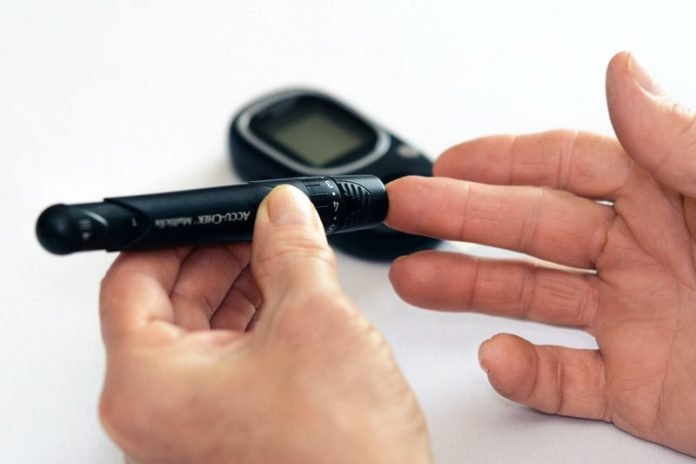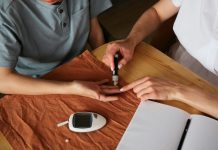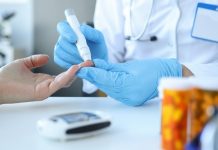
About one-fourth of people with diabetes develop painful foot ulcers, which are slow to heal due to low oxygen in the wound from impaired blood vessels and increased inflammation.
These wounds can become chronic, leading to poor quality of life and potential amputation.
In a new study from Washington University in St. Louis, researchers developed a hydrogel that delivers oxygen to a wound, which decreases inflammation, helps remodel tissue and accelerates healing.
The hydrogel delivers oxygen to the wound using microspheres that gradually release oxygen to interact with the cells through an enzyme on their surface that converts what is inside of the microsphere into oxygen.
The oxygen is delivered to the wound over about a two-week period, and inflammation and swelling decrease, promoting healing.
Tissues in the body require oxygen to survive and need even more when tissue is injured.
While there are several existing treatments for chronic wounds in people with diabetes, the most common treatment is dozens of sessions in a hyperbaric oxygen chamber, but its effectiveness is inconsistent and includes the risk of oxygen toxicity.
In the study, the team found in mice, wounds treated with the hydrogel containing the oxygen-releasing microspheres had a greater rate of closure than wounds treated with only the gel or those with no treatment.
By day 16, the wounds treated with hydrogel had reduced to 10.7%. Those treated with the gel only were reduced to 30.4%, and those with no treatment had reduced to 52.2%.
In addition, the wounds treated with the hydrogel containing the oxygen-releasing microspheres had the thickest epidermis on day 8, but the thinnest by day 16, indicating the wound was healing and inflammation was reduced.
One risk of delivering oxygen to wounds is delivering too much, which creates reactive oxygen species (ROS), which can damage or kill cells at elevated levels.
The new hydrogel is able to scavenge for ROS content and destroy it, eliminating any risk.
Next, the team plans to use the hydrogel in a large animal model with the expectation of future human clinical trials.
If you care about diabetes, please read studies about common cholesterol-lowering drugs linked to higher risks of diabetes, skin infections and findings of these common vegetables may reduce kidney damage caused by diabetes.
For more information about diabetes and your health, please see recent studies about common stomach drugs may improve blood sugar control in diabetes and results showing that people with diabetes need to prevent low blood sugar.
The study is published in Science Advances. One author of the study is Jianjun Guan.
Copyright © 2021 Knowridge Science Report. All rights reserved.



